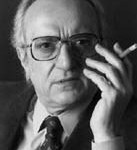Shifting opinions among people who consider themselves independent voters are leading to changes in the shape of the races for Wisconsin’s 10 electoral votes for president and for Wisconsin’s open US Senate seat, new results of the Marquette Law School Poll show.
In results released Wednesday for the Senate race, Rep. Tammy Baldwin, the Democratic candidate, led former Gov. Tommy Thompson, the Republican candidate, by four percentage points, 48% to 44%. That compared to a nine point Baldwin margin two weeks earlier and a nine point margin in favor of Thompson in mid-August.
Democratic President Barack Obama led Republican challenger Mitt Romney by 11 percentage points, 53% to 42%, in the presidential race in Wisconsin. That compares to a 14 point lead (54% to 40%) in results released two weeks ago.
Professor Charles Franklin, director of the Marquette Law School Poll, said all four of the candidates have high levels of support (more than 90%) among likely voters who identify themselves with each candidate’s party. But there are changes among independents. Franklin said, “In mid-August, independents leaned a bit Republican in the Senate and slightly Democratic for president. In mid-September, they leaned strongly Democratic in both races, and now they are swinging back to more competitive balance.”
The results showed substantial gender gaps in both the presidential and Senate races, with majorities of women supporting Obama and Baldwin and majorities of men supporting Romney and Thompson.
The new polling was conducted from Sept. 27 to 30. The results are based on answers from 1,003 registered voters, of whom 894 were considered likely to vote in November. The margin of error among likely voters is 3.3 percentage points.
For details and results of all the questions in the new poll, click here.
 The death of distinguished historian Eugene D. Genovese on September 26 led me to reflect on both his scholarly accomplishments and his intellectual and political thought. No book inspired me more as a graduate student than Genovese’s Roll, Jordan, Roll (1975), but Genovese’s sharp turn to the right in his later years was troubling indeed.
The death of distinguished historian Eugene D. Genovese on September 26 led me to reflect on both his scholarly accomplishments and his intellectual and political thought. No book inspired me more as a graduate student than Genovese’s Roll, Jordan, Roll (1975), but Genovese’s sharp turn to the right in his later years was troubling indeed.